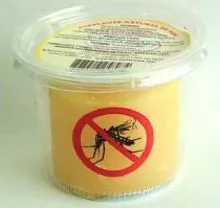Biotechnology has launched several products in the world market. The innovation is to replace products derived through traditional methods of chemicals in products with the same efficiency but that the chemical obtained through natural alternatives. <br><br>This is our challenge, to create natural products that can replace the existing market with results as or more effective than the chemical. <br><br><b>HISTORY </b><br>Neem (Azadirachta indica) is the name of a tree in the Meliaceae family, unique in its botanical genus. Its scientific name refers to its origin from India. <br><br>Also known as neem or bitter, is a multipurpose tree, as it has a set of utilities. Its leaves, fruits, seeds, bark and wood have different applications, both as a source of materials used for medical, veterinary, cosmetic, as in the production of fertilizers and pest control. That last, has called the attention for being excellent in various conrole of biological pests and diseases that attack plants and animals in the field. <br><br>According to researcher Hélcio Abreu Jr., the high insecticidal power plant will achieve 90\% of success in controlling agro ecological with extracts of Neem, with the advantage of not affecting the natural enemies (predators, parasites and entomopathogens). Thus, it is possible to maintain the pest population at low levels beyond the level of economic damage. <br><br>Natural insecticide, insect repellent, fungicide, anti-, bactericidal and anti-septic, over 3 thousand years these properties of Neem is used by the Indians, in personal hygiene, human therapeutics, animal and plant. <br><br><b>Neem in Brazil </b>:<br>The Agronomic Institute of Paraná "IAPAR" introduced this plant in Brazil in 1986 and EMBRAPA, the seeds brought in 1993 to scientific studies. Polls conducted by researchers from EMBRAPA IAPAR and confirm that the plant is a powerful natural repellent. Derivatives, as biorepelentes, fight 418 different species of insects, pests, fungi and nematodes (worms). The active principle of the plant (azadirachtin), extracted fruit, causes physiological changes in insects, with a benefit for the environment, the plant only acts against the pest, preserving their natural predators, those insects that feed on insect enemies, not There is therefore concern of toxicity to humans. <br><br>The IBAMA (Brazilian Institute of Environment and Renewable Natural Resources) has given assent to restore national forest species with Neem.
Paulo ********
+55 11********
São Paulo / SP | Brazil







